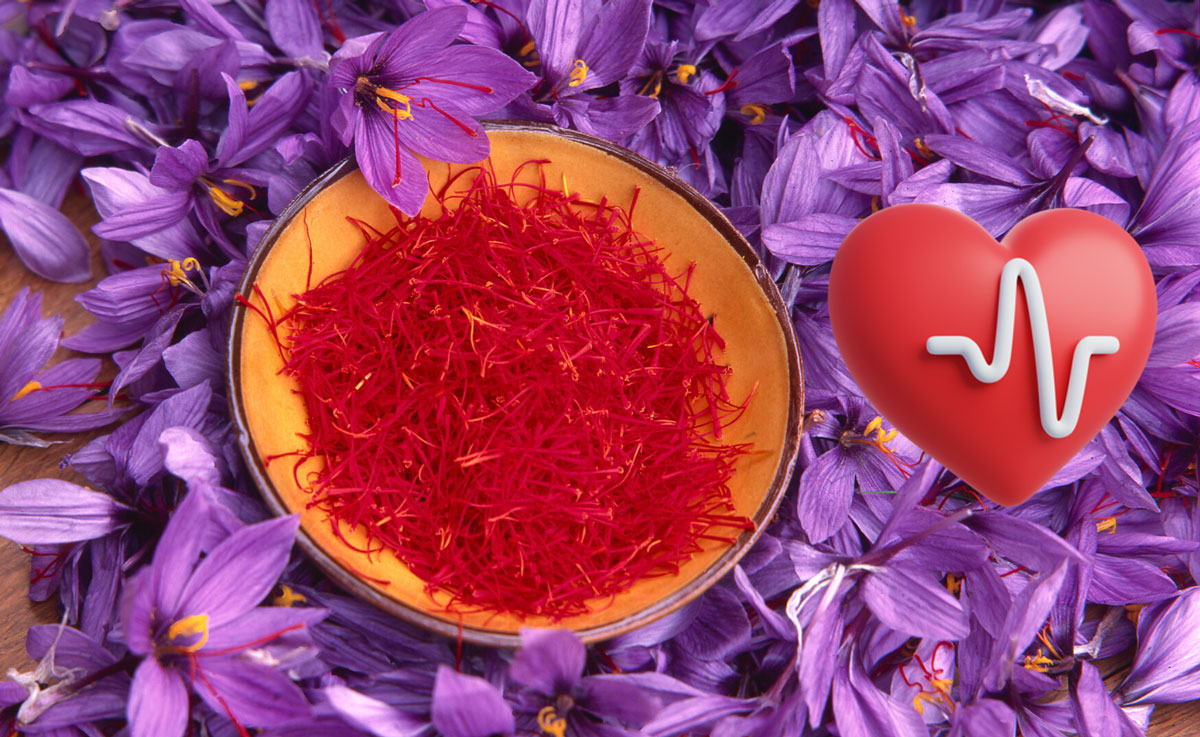Saffron is a dried stigma derived from a specific portion of Crocus Sativus flowers, one of the flower species evolutionarily close to the lily. This magical spice and food additive has been extensively used around the world due to its enchanting color and funny taste. Also saffron health benefits have been proven in many studies.
Saffron’s biological lineage belongs to a great plant family named Carotenoids with warm colors and major active components called crocin, safranal, and crocetin. It has a lot of iron, manganese, potassium, and vitamins C and B6. Since ancient times, people have been using saffron for traditional and herbal medicine in some regions. There are many different types of saffron like Sargol saffron, White saffron, Super Negin saffron and … .
In this article Persatrading as a saffron export company, will introduce the most important health benefits of saffron.
Saffron Health Benefits
Most common uses of Saffron are as follows:
In foods and culinary art
In addition to Carotenoids, Saffron is full of other plant natural products, which makes it pervasively used as an essential popular spice and food colorant. It is delicious when cooking rice dishes with chicken or seafood dishes.
Saffron gives food a unique flavor and increases the vitality and energy of the body and mind due to its warm nature.
In traditional medicine
From the perspective of traditional medicine, saffron has many therapeutic and medicinal properties and has a special place in treating diseases, especially anxiety, stress, discomfort, and coldness.
Saffron has a warm and dry temperament. This division is based on four elements, and according to the primary sources of traditional medicine, it is at the level of two degrees of warmth and one degree of dryness.
Traditional healers have long prescribed it as a sedative, analgesic, antispasmodic, and stomach tonic. In diets that are part of the conventional healing process and medicinal use, they also play a fragrant, flavoring, and coloring role.
The Consumption of saffron tea helps digestion, is a pain reliever and regulator, and stimulates the nerves. It is hematopoietic and facilitates blood circulation, eliminates postpartum hemorrhage, strengthens sexual power, and cleanses the kidneys and bladder. It is sedative, hypnotic and anticonvulsant. It purifies and strengthens the liver; It relieves flatulence, is a diuretic, and can even lighten facial skin.
Saffron effectively strengthens memory and learning, lowers blood pressure, lowers blood lipids, treats asthma relieves bloating, and treats seizures and toothaches. Among the clinical uses of this plant is its use to facilitate difficult deliveries.
It is recommended to drink at least one cup of saffron tea to focus the nerves and relax.
In modern medicine: Saffron health benefits
According to many researchers, saffron or its bioactive components have an extraordinary capacity to improve conditions such as depression, neurodegeneration, and symptoms of diabetes and cardiovascular diseases due to their antioxidant properties. Many of the healing properties of saffron are due to compounds such as crocetin, crocins, and other substances with strong antioxidant properties to scavenge free radicals.
Antioxidant properties
One of the most important saffron health benefits is its antioxidant properties. Despite not being in the category of nutrients, bioactive components directly affect the living organism and play a pivotal role in the antioxidant activity of the saffron extract. Antioxidants prevent tissue damage by interrupting the chain of chemical reactions that produce free radicals by oxidation. The simultaneous presence of all bioactive components in saffron creates significant antioxidant activity.
Because of oxidative stress and free radicals’ adverse effects on health conditions, including cancer and heart disease, antioxidants such as the compounds in saffron may help protect a person’s health.
Improvement of diabetes and cardiovascular disease
Crocin, as one of the main components of saffron, by inhibiting the lipase activity of the stomach and pancreas, reduces the negative effects of a high-fat diet on health. And because pancreatic lipase is responsible for lipid uptake, inhibition of its activity reduces fat uptake. It also indirectly lowers blood cholesterol levels due to the presence of Quercetin in it and thus reduces the chance of a heart attack.
Although the anti-diabetic mechanism of saffron is not well understood, according to the evidence, it can be hoped to benefit people with diabetes through fat control. Studies attribute various anti-diabetic mechanisms of saffron and its components to its antioxidant effects.
Treatment of mental disorders
Several clinical trials and studies have shown that saffron and its active ingredients have similar properties to current antidepressants such as fluoxetine, imipramine, and citalopram but with fewer side effects.
There is much evidence that reveals the positive effect of saffron consumption on improving psychosomatic diseases. Saffron has neuroprotective activity due to its active chemical components. The effectiveness and safety of saffron in some brain diseases such as depression, Alzheimer’s disease, Parkinson’s disease, and cerebral ischemia have been confirmed in various research and clinical cases.
Adjustment of hormone levels and treatment of PMS
Almost all women develop PMS or premenstrual syndrome, mainly due to hormonal fluctuations and nutritional deficiencies. According to studies, using saffron capsules or inhaling its scent by changing the level of some female hormones has a significant effect on treating this syndrome and its side effects, such as depression. This is one of the most important saffron health benefits.
Disadvantages
Like any other nutritious and beneficial substance, overuse of saffron can have destructive and even irreversible side effects. As an example, excessive consumption of saffron tea is harmful to the kidneys and reduces appetite.
Effects on Pregnancy: Saffron Health Benefits
The acceptable amount of saffron used during pregnancy, excluding the first three months, with a prescription and under the supervision of a doctor, can have many benefits, including controlling blood pressure, relieving congestion, maintaining calm, glowing the skin, and protecting against allergies and infections.
But if the dose exceeds the sensitive amount, it can have the opposite effect. Saffron may harm the reproductive system; therefore, pregnant women should avoid overeating it because excessive consumption may cause uterine contractions and increase the risk of miscarriage.
Dose limit
Consuming more than 5 grams of saffron in a meal is toxic. Five grams of saffron for a person is too much, and it might cause side effects such as dizziness, decreased heart rate, nausea, vomiting, uterine bleeding, bloody diarrhea, bleeding in the nose, eyelids, and lips, dizziness, lethargy, jaundice, and severe smooth muscle stimulation. If anybody uses more than 20 grams of saffron in a meal, it might kill the consumer.



